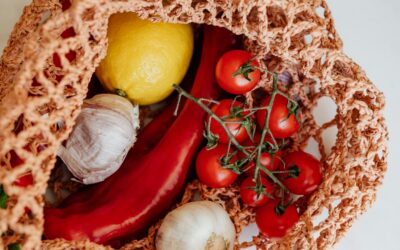Be honest… How often are you faced with the frustration of having to throw away ingredients because they were improperly stored or packaged? You are not alone, that is why we created this article! What a waste! Proper storage equals food waste prevention and savings. By storing products the right way, you can reduce spoilage in the kitchen, which means less food waste and more money saved.
Don’t worry. Orbisk is here to help. Here are some practical tips:
The Freezer as a Business Partner
Want to keep your products fresh longer? Piece of cake! There’s a magical device on the market that can preserve your ingredients for a long time without compromising quality, nutrients, or taste.
What are we talking about? The freezer, of course. Freezing your ingredients is the best way to extend their shelf life, and it’s helpful for several reasons. You can prepare and freeze large quantities and use them when needed. You can also stock up on good deals when suppliers have special offers. We call it cost-efficiency through storage.
Monitor the Storage Environment
If a product can’t be frozen and needs refrigeration instead, pay close attention to the storage environment. Check the temperature and ensure proper ventilation to prevent condensation (and thus mold). Here’s a handy tip: if your refrigerator or freezer is full, make it colder. It makes a world of difference.
Package Products and Organize Your Stock
Keeping your fridge and freezer well-stocked is a fantastic way to prevent food waste, but only if it’s well-organized. An orderly inventory is essential for effective food storage. You definitely don’t want to discover ingredients from ages ago with layers of freezer burn. It’s also crucial to package products correctly.
Keep these things in mind:
- Store raw meat or chicken on the lowest shelf of the refrigerator to reduce the chance of juices dripping onto other products.
- Don’t store products in open cans, as the metal can react with the contents due to oxidation, affecting the flavor.
- Don’t store acidic foods like tomatoes, cabbage, or fruit in aluminum foil. The acid can slowly dissolve the foil, leading to contamination with aluminum. Oops!
- Always label products and packages, noting what’s inside and the packaging date.
Innovative Storage Methods to Prevent Food Waste
Want to reduce spoilage in your kitchen? Try these food preservation techniques:
- Fermentation
- Pickling
- Brining
- Confit
These methods let you creatively reuse products that would otherwise end up in the bin. Fermentation, for instance, is super trendy. Instead of sugar, use salt in this form of pickling. With leftover cabbage, cucumbers, and other veggies, you can easily whip up a delicious kimchi to accompany that one Asian dish.
Confit involves cooking ingredients in fat or sugar at a low temperature. Although ingredients preserved this way don’t last as long as those that are pickled or fermented, it’s still a great technique. How about confit apples, pears, peaches, or apricots for dessert or salad? Or confit zucchini in oil with garlic and pepper? It tastes great in pasta salad.
Got leftover meat or fish? Brining is an excellent option. This method extracts all the moisture from the product, slowing down spoilage. It’s a tasty choice to consider.
Preventing food waste with Orbisk
Many hotels have already reaped the benefits of reducing food waste with Orbisk. In fact, hotels in over 40 countries are already working with Orbisk to reduce their food waste and increase their savings. One example is Raffles Singapore, who’s kitchen team reduced their food waste by 29% using the Orbi. Want to read about it? Click here to read the Raffles Singapore success story.
Will you be next? Take the next step and contact our team to schedule a free consultation meeting.
Have a practical tip to help store products better or longer? We’d love to learn from you! Send an email to [email protected].






